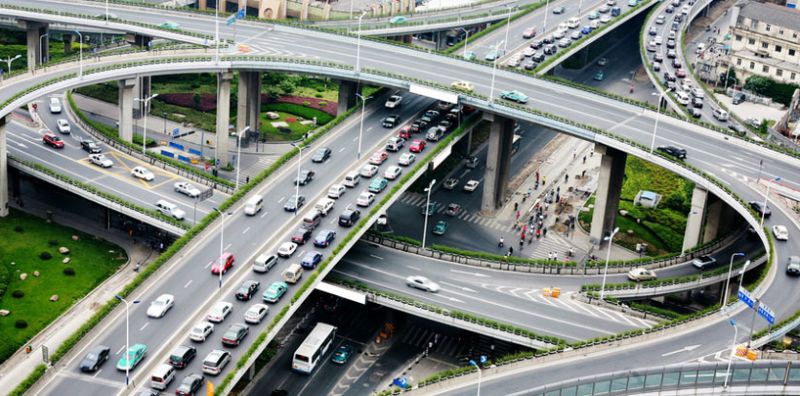
Role of Transportation:
Mobility is a fundamental human requirement. Everyone has travelled for food or pleasure since the beginning of time. Throughout history, the evolution and developments in transportation infrastructure have been directly tied to the development of human beings. It is critical for any region’s economic development. People and goods are mostly transferred material from one location to another. Transportation is required during the manufacturing stage to deliver raw materials such as seeds, manure, coal, and steel. Transportation is required in the distribution stage from production centres such as farms and factories to marketing centres, and then to merchants and customers for distribution.
Inadequate transportation infrastructure stymies the country’s socio-economic and cultural development. The development of an adequate transportation system reflects the country’s economic growth and social development. The major goal of a good transportation system in today’s notion is to provide a safe, affordable, and efficient transportation facility for passengers and cargo transit.
Economic Activity and Transport:
The process through which items are used to meet human need is known as economic activity. From the production stage to the ultimate distribution, transportation plays an important part in economic activity. The following are two well-known economic factors:
- Production or supply.
- Consumption for human wants or demand.
The people, their goods, and the natural resources of the area are not restricted to the immediate vicinity. The importance of transportation in economic activity has an impact on meeting demand for commodities as well as improving production and distribution efficiency.
Social Effects of transportation:
a. Sectionalism and transportation: better mobility has a significant impact on lowering sectionalism both within and outside the country. Traveling to different parts of the country and even outside the country on a regular basis boosts one’s awareness of people from various social groups.
b. Population concentration in urban regions: The affluence and employment prospects of urban areas attract people from other areas, resulting in increased movement of people from other areas to and from industries, schools, hospitals, and other social requirement.
c. Safety, law, and order: Transportation facilities are necessary for delivering emergency aid to areas affected by an emergency. To maintain domestic law and order, it is necessary to have an efficient transportation network to define the country’s territory against external aggression and to guard the country’s borders with foreign territories.
The following are some of the social implications and benefits of transportation:
- Transportation contributes to communal improvement and advancement.
- Transportation is necessary for the country’s economic prosperity and general growth.
- Transportation is necessary for strategic mobility in an emergency for the country’s defence and to preserve stronger law and order.
